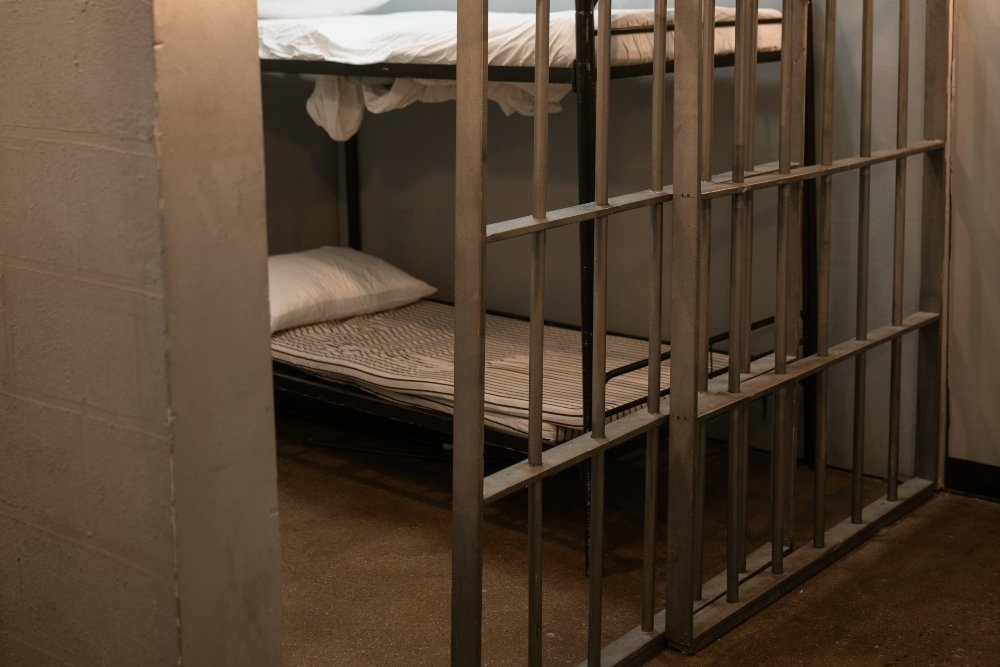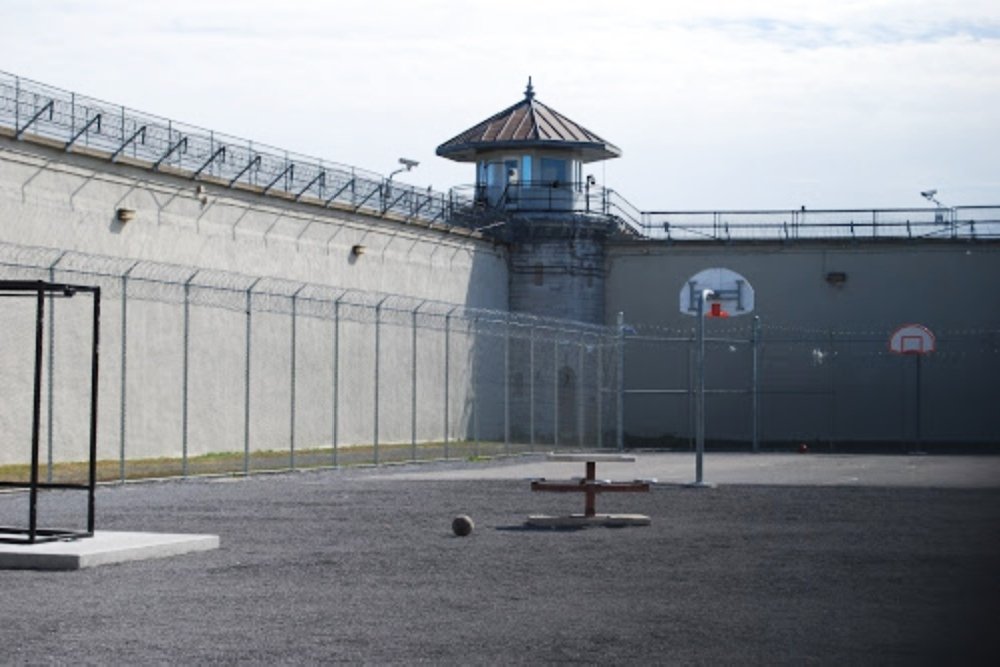A lot of people will be inquisitive of how incarcerated prisoners get medical treatment in a secluded environment. Watching movies on prisoners life will not show much about the working in prison healthcare system. In this blog I shall explain my experience as a prison medical officer managing healthcare issues of prisoners in a prison environment.
That was in early 2000, I got a phone call from a stranger who introduced himself as Dr.Ranasingha, a friend of my colleague Dr.Ali, who used to work with me in the Benefits Agency Medical Services. Both of them were from Srilanka, and after introducing himself, Dr.Ranasinghe told that he was working in Rochester Prison. He enquired whether I was interested in working in the prison to cover for his holidays. At that time I was not having any idea about the role of a doctor in the prison environment. After a while I rang back Dr.Ranasinghe and told him that I was interested in the post, as I thought that it would be a challenge working in a difficult circumstance.
In addition to Rochester Prison, I worked in Maidstone Prison, Swaleside Prison,Canterbury Prison, Wayland Prison and Parkhurst Prison in Isle of Wight. All prisons have a general set up, such as a huge car park with CCTVs, 30 feet high and 2 feet thick walls with high security posts in the corners, a gate big enough for passing lorries and an inset gate for general public to get in and out. The inset door will be opened on pressing the calling bell, and once entered, the visitors or staff need to report to the reception.From now on all gates and doors are locked to be opened with keys and after entering to be locked. If you are a visitor, then you will have to wait until the prison staff in charge of the department arrives to escort you to the department, involving opening and closing various doors. Everyone has to register their name and the time of entry and exit in the ledger book at the reception. At this point, you will have to hand over all banned items like electronic equipments, mobile phone, sharp objects,drugs,substances of abuse, match boxes, alcohol, cutlery, umbrellas and so on to the reception and get a receipt. A prison officer will do a pat on the staff as well as visitors to make sure that the person entering into the prison compound is not security risk. In Maidstone prison, I used to park the car inside the prison, for which the prison security officer had to thoroughly check the car in full. Elaborate checking is very important when relatives or friends visit a prisoner, and it is a serious offence if a visitor smuggles items like drugs into the prison. Those who are there to work in the prison, will be given a set of keys attached to the belt by a three feet long chain, and a whistle stuffed inside the pocket of a belt. The belt has to be tied around the waist, and each time while entering one has to take the keys from the pocket attached to the belt and put it back in it after closing the gate or door. The keys will fit in with most of the locks in the prison, and in the unforeseen instance the keys are snatched by an inmate, the holder has to raise an alarm by whistling, and the security staff will trigger the whole prison emergency alarm.
There are different departments in the prison compound and it is important for the new staff to get an orientation of the same. Main blocks are dormitory where inmates are locked down, administration block, healthcare block and recreational areas which include, indoor games, library, gym, and walking areas. In addition there will be sections for kitchen, dining area and laundry. Normally in the UK, prisoners are out of their cell for 12 hours. In the morning, they will be escorted to their work place where they make furniture, repair electronic equipments, make clothes and handicrafts. The prisoners will be paid per hour for doing such work and such involvements have therapeutic effect. Whilst inmates working, prison staff will be observing them, as the inmates are known for their volatile violent behaviour attacking co-prisoners, staff or injuring themselves. One thing the inmates are preoccupied with all the time is how to get out of the prison! When I met Dr.Ranasinghe first time in his office, he overemphasised the significance of prison security by telling, that a prisoner escaping was worse catastrophe than his/her accidental death! Healthcare staff, including doctors, nurses and pharmacists, play a major role in monitoring, organising and controlling the inmates through the use of medication and psychiatric intervention. In spite of the extreme security, I was surprised to know that a lot of inmates were getting controlled drugs like, cocaine, cannabis, and heroin through either the staff or relatives with the connivance of prison staff. Those days without the prevalence of drones, I was amazed how some of the inmates managed to get SIM card or mobile phone with it. I have also observed that most of the inmates were from lower class strata of the society, one parent family and of relatively low intelligence. These influenced them turning into robbers, murderers, sexual deviants and substance abusers. Distressingly a lot of the inmates were manipulative and less compliant in regularly taking medication. I also noticed that some of them were attention and sympathy seekers and inveterate liars. During my initial period of working , I understood that the worst question to offend an inmate was to ask them how they landed in the prison, and therefore I always avoided asking inmates about the crime they had committed.
Prison healthcare staff were in charge of conducting ‘induction’, primary care, mental health, emergency care, dental care, substance abuse treatment and secondary healthcare. Normally, on certain days of the weeks a batch of inmates will be brought in a prison van, and after the initial scrutiny and their changing into prison uniform, they will be seen by prison medical officer who will record the physical fitness and medical history of the arriving inmates. This introduction into a prison is called ‘induction’. The next major job for the medical officer is attending the ‘sick parade’ whereby inmates are escorted by attendants into the consultation room. Here the patients present with clinical symptoms of general ill health. Some of them will have withdrawal symptoms due to lack of substance or drug availability. To treat the withdrawal symptoms,they will be asked to take similar pharmacological group of drugs in a tapering dose. Patients with anxiety and mild depression are managed by the medical officers. Psychopaths, Inmates with psychotic symptoms, and those who self mutilate, are difficult to treat.Those who are severely incapacitated are referred to visiting psychiatrist. I also came across with patients suffering from various infections, diabetes,chronic obstructive pulmonary disease (COPD), fits, hypertension, rheumatic and heart conditions, who were appropriately managed or referred to visiting specialists. After the ‘sick parade’ I need to go to segregation, where inmates are put in single cell whole day. Some of the unfortunate inmates sustain injuries after physical tackling by prison officers. This is a regular occurrence, if the inmates are not compliant with the prison regulations. I have to physically examine such inmates, record all bruising, abrasions, damage to internal organs and formally make a report. At times, I need to refer them to the accident and emergency. Normally two prisoners are put in a cell, but if the prisoner does not cooperate or become violent they are put in a single cell as a punishment. Prison policy is to reward well behaved inmates with privileges to entice them, and for bad behaviour, reduction of privileges or punishments are imposed. Inmates in segregation are more difficult to be managed as they can refuse food, self inflict wound, shout in abusive language, bang metal bars of the prison door, or smear faecal matter on walls called ‘dirty protest’. Prison staff used to summon me in the night for attending inmates with profuse bleeding due to cutting their own blood vessels in the wrist, or for severe abdominal or chest pain. Most times I had to send patients to the accident and emergency departments of the local hospitals for further management.
There is another duty for the prison medical officer called adjudication. Then I have to read the full life history, including the records on court hearing leading to the conviction, and about their present behaviour. I have to put my opinion in the adjudication report whether the inmates deserve to be released early for the benefit of the parole board. In Swaleside and Parkhurst prisons, I came across a lot of lifers but in my interview with them, no one sounded interested in leaving the prison early! I have come across face to face with armed robbers, arsonists, paedophiles, rapists, honour killers of their own children, in laws killing their daughter in laws, drug mules, drug addicts, drink driving convicts, and fraudsters in various prisons. Once on an adjudication, a convicted drug mule tried to convince me that he had not done any smuggling of cocaine with his knowledge from South America. His plea was that some drug Mafia planted drugs in his suitcase. Most of the inmates do not confess committing the crime, but blame the circumstances or the police for framing a case against them. In Maidstone prison I have heard stories of people committing theft to get imprisoned, so that they secure warmth of shelter and food during the cold winter season! Rochester and Maidstone prisons are category C prison, where the offender’s term is fewer than four years, but in Wayland, Swaleside and Parkhurst prisons, the usual term of the inmates is 20 years or more. Those who are remanded and immigration detainees are generally seen in Canterbury and Rochester prisons. In prisons I have found talented inmates who can paint pictures, or play musical instruments skilfully.
Working in prison, is not good for doctors who are aspiring academically. But one need not be very punctual and can lead a relatively relaxed life, provided the doctor gets on well with the governor and staff. The remuneration in the prison system for doctors was good those days and were placed in a respectful position. The downside is the lack of freedom, inability to keep a mobile phone and the hassle in getting in and out of the prison. Looking at my pocket notebook, I see there was a bomb alert on 14/11/2001 in Swaleside prison, and for hours no one was allowed out or in, affecting one’s freedom. The risk of being attacked physically is one important issue to be considered. I was threatened once by an inmate for not prescribing the drug he had asked for.This is because the prisoners have no stake in the society and nothing significant for them to lose. A lot of them are short tempered, unpredictable and can get agitated and aggressive for hearing unpleasant things. In my view, only a very few inmates will repent on what they have committed and make an attempt to reform contrary to what religious people teach us. Although prison staff will get used to the indignities of prisoners over a period of time, my view is that the working environment in a prison as a whole is stressful.


Comment Form